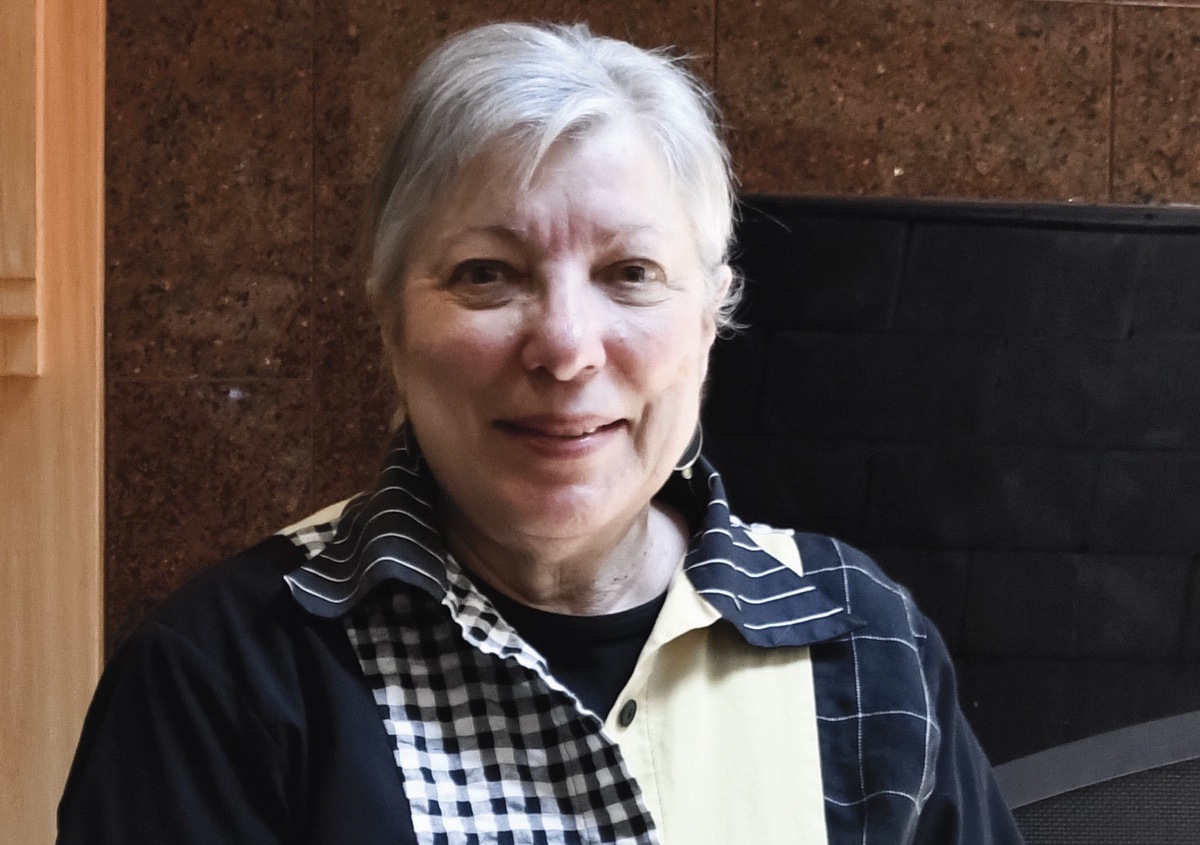Most self-help books help foster growth in all aspects of life. But these may not hold your attention like a favorite fictional story. Merida Johns, Ph. D., has found a way to incorporate self-help into the entertainment of fictional characters.
Johns, a Sun City resident, is the founder and director of The Monarch Center for Women’s Leadership Development. She is a retired university professor and has authored textbooks in health care and leadership.
What gave her the idea to start writing fiction?

Author and PhD Merida Johns puts excitement into self-help books. (Photo by Christine Such/My Sun Day News)
Johns said, “I started my practice as a leadership coach helping women break the glass ceiling and fulfill their leadership and economic potential. During a conference call with my coaching colleagues, I was asked to write another self-hope book. I didn’t want to write another academic book, but what if I placed the psychology of achieving a flourishing life into ordinary people, storytelling instead of another self-help book? I was asked why don’t you do it? I decided to take on the challenge.”
Three years later, Johns wrote her first novel, Blackhorse Road, a story of womanhood and the power of choice, gratitude, and forgiveness. She has finished and published two more books, Flower Girl and Flawless Witness.
“In Flower Girl, the character’s strengths are love and caring, and she overuses that strength to care for others to the point that she is being used. Flawless Witness was a hard one to write. It’s a spin-off of Flower Girl. I was prompted to write this book to answer questions my readers had. They wanted to know the rest of the story.”
Johns has more books on the horizon.
“I am writing two more books. I am incorporating positive psychology. It’s looking at what’s right with people not what’s wrong with people. It’s a philosophy introduced by Martin Seligman. His five-year-old daughter inspired him to work in this direction. They were weeding the family garden and his daughter said, ‘If I can stop whining, you can stop being such a grouch.’ For many years, Seligman had been researching helplessness in animals and depression in human beings. The work, as his five-year-old daughter had noticed, made him gloomy, impatient, and critical.”
Seligman’s research led to asking what is good in people. What makes a happy Life?
Johns said, “Martin had developed a model, PERMA. Its letters outline the path ‘P’ – Positive Emotion, E – Engagement, R – Positive Relationships, M – Meaning, and A – Achievements. I use these concepts in my books; ordinary women tackle challenges, live through sorrow and betrayal, struggle with doubt, and act on their aspirations to achieve flourishing lives.”
How does this work?
“The characters find their strengths and then use them to overcome obstacles. They dig deep to reach their self-awareness. From the Greeks to the present, we have universal values. My characters tap five of these for their strength; bravery, creativity, curiosity, justice, and forgiveness. In my last book, Flawless Witness, the character suppressed the memories of her ex-husband’s abuse for thirty-six years, but when a tell-all journal surfaces after his death, she goes through the process of forgiveness and letting go of a grudge.”
Merida Johns’ books can be found on Amazon and Barnes and Noble. Johns is also available to address groups.
“You can take an assessment online at www.viacharacter.org and find out what your strengths are,” she said.
Johns invites Sun City readers to “Make yourself at home. Explore my blog posts, share your comments, and ask me questions about my writing. I hope my fictional characters and stories transport you to unexpected places. Browse and see what you can find to enjoy in my fiction as well as my non-fiction books featured on my webpage.”
Johns’ website is: www.meridajohnsauthor.com





